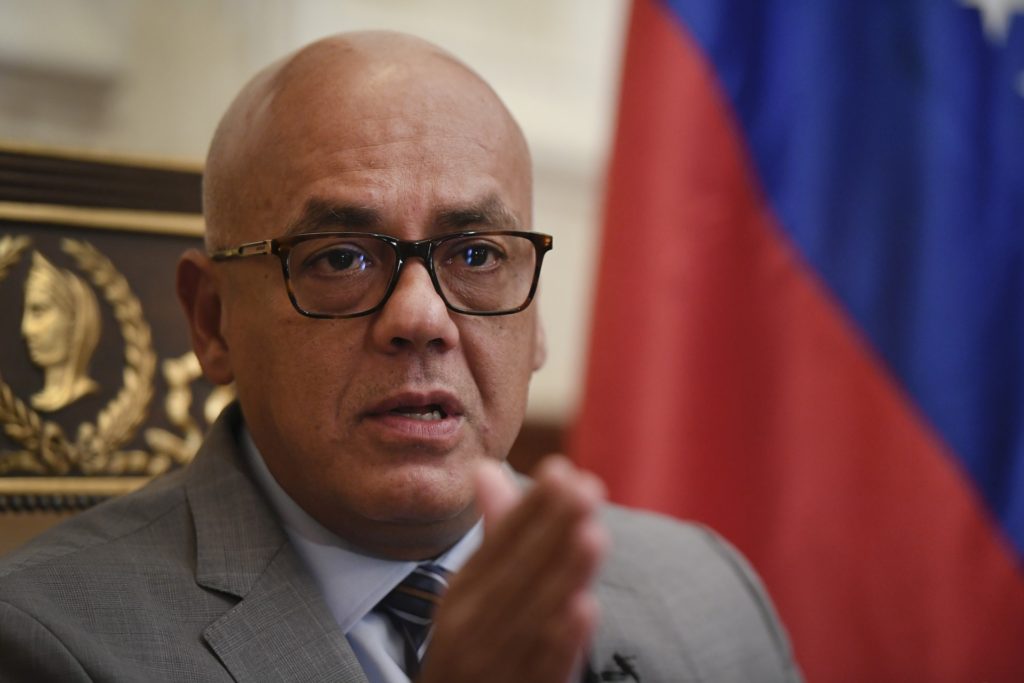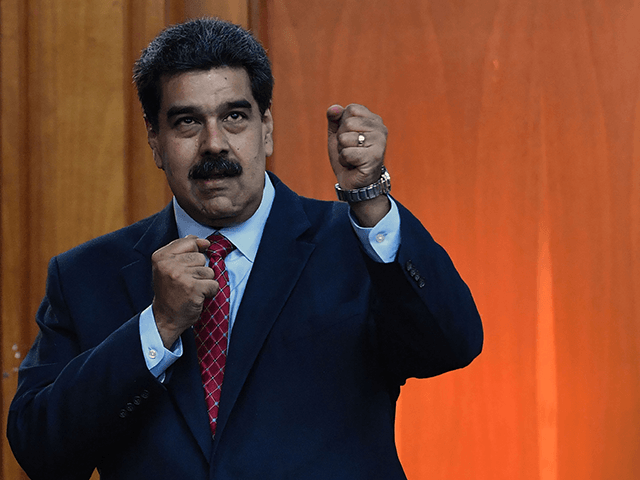The main opposition coalition in Venezuela, led by politicians associated with socialist parties, revealed this week that its leaders had met with a delegation sent by President Joe Biden to discuss alleged “negotiations” with socialist dictator Nicolás Maduro.
The coalition — which calls itself the Unitary Platform of Venezuela after Maduro banned its prior iteration, the Democratic Unity Roundtable (MUD) — offered few details in a press release published Tuesday, spending most of its message attempting to justify talks with Maduro. Negotiations between Maduro and the opposition have been unpopular among the vast majority of Venezuelans for years, and polls consistently show that a majority of Venezuelans do not support the establishment, socialist opposition.
The American delegation appears to have met with Unitary Platform members after visiting Maduro. The United States does not recognize Maduro as the legal president of Venezuela as he lost that title in 2019 after the sham presidential “election” of 2018. The constitutional president of Venezuela is former lawmaker Juan Guaidó, but Guaidó has completely failed to exercise any of his powers as Maduro retains control of the military and law enforcement.
“On the occasion of the American delegation’s visit, we have held a meeting today to coordinate efforts aiming for the re-establishment of the negotiation process,” the Unitary Platform announced in its press release, referring to prior talks with the Maduro regime in Mexico, which resulted in no tangible agreements or changes in daily life in Venezuela.
“We reiterate that we are ready to immediately reassume a serious negotiation process under the memorandum of understanding signed in Mexico that we insist must have an objective ending the suffering of the Venezuelan people,” the press release read, “and achieving change through the most poweful instrument a citizen has, the vote.”
The press release listed many of the acute social problems aggrieving Venezuela under socialism as a reason for negotiating with its dictator.
“We Venezuelans are enduring the suffering of family separation, the lack of dignified salaries, there is no access to health[care], there are no quality of life public services,” the statement continued, “there is a grave humanitarian crisis and this forces us to not rest until we achieve a full agreement that allows the construction of permanent solutions to alleviate all these serious problems and also achieve the democracy and freedom that we all aspire to.”
The Unitary Platform did not specify if its members discussed any of these issues with the Americans.
Neither the White House nor the State Department has published a readout or press release about this meeting at press time. The Biden administration did confirm, however, that a delegation arrived in Caracas and met with Maduro after the dictator himself announced the exchange on television.
“I am in communication with Jorge Rodríguez,” Maduro announced, referring to the head of the socialist-dominated legislature. “He is currently receiving a delegation from the U.S.”
“An important delegation from the government of the U.S. that has arrived in Venezuela two hours ago. And he is working to continue communications initiated on March 5 and to continue the bilateral agenda,” Maduro said on Monday.

National Assembly President Jorge Rodriguez gives an interview at Congress in Caracas, Venezuela, Friday, Jan. 15, 2021. (AP Photo/Matias Delacroix)
The State Department confirmed the meeting to leftist outlet CNN on Monday. Various reports citing anonymous sources claim the Biden representatives were seeking to discuss freeing Americans imprisoned in Venezuela; Maduro did not offer any details in his remarks.
Biden first sent representatives to meet with Maduro in March. At the time, rumors swirled that Biden was seeking to lift sanctions on Venezuela’s oil industry to replace supplies of oil coming in from now-sanctioned Russia without having to allow more domestic oil production. Unlike allowing American oil companies to produce more at home, buying Venezuelan oil would likely greatly enrich Russia — nullifying the purpose of buying it in the first place — as the Maduro regime is billions of dollars in debt to both Russia and China, its largest patrons.
Two months later, the Biden administration reportedly greenlit talks between the Venezuelan government and the American oil company Chevron, which would have previously violated sanctions.
“It does not allow (Chevron) entry into any agreement with PDVSA or any other activity involving PDVSA,” anonymous Biden officials reportedly claimed in comments to the press. “So fundamentally what they’re doing is just allowed to talk.”
Engagement between the Venezuelan socialist opposition and the Maduro regime is extremely unpopular in Venezuela. Guaidó began embracing talks with Maduro almost immediately after assuming the presidency in 2019, which 88 percent of Venezuelans opposed at the time, according to a poll by the firm Meganálisis. In response to the backlash, Guaidó insisted that he was not engaging in “negotiation” with Maduro, but in “mediation.”
Polls throughout the past three years do not indicate any significant change in the attitudes of Venezuelans towards the opposition. A Meganálisis poll published in May found that 78 percent of Venezuelans would describe opposition leaders as “sellouts.” Another 82.3 percent said they “do not trust” opposition leaders.

COMMENTS
Please let us know if you're having issues with commenting.